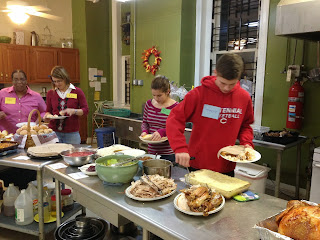IN the early 1970s,
a team of researchers dropped hundreds of stamped, addressed letters near college dorms along the East Coast and recorded how many lost letters found their way to a mailbox. The researchers counted each posted letter as a small act of charity and discovered that students in some of the dorms were more generous than others.
Nearly all of the letters dropped near uncrowded dorms — residences where comparatively few students lived on each floor — reached their intended recipients. In contrast, only about 6 in 10 of the letters dropped near crowded dorms completed the journey.
Apparently, the students in high-density housing, where everyone was packed close together, felt less connected to their college mates and this apparently dampened their generosity.
Later, when the researchers asked a different collection of students to imagine how they might have responded had they come across a lost letter, 95 percent of them said they would have posted it regardless of where they were living.
Most people, in fact, think of themselves as generous. In self-assessment studies, people generally see themselves as kind, friendly and honest, too. We imagine that these traits are a set of enduring attributes that sum up who we really are. But in truth, we’re more like chameleons who instinctively and unintentionally change how we behave based on our surroundings.
The lights, which mimicked those atop police cars, seemed to imply that the police were watching. In 2005, police in Nara Prefecture, Japan,
installed blue lights at crime hot spots and got a similar result: the overall crime rate fell. When others tried the approach, they found that littering and suicide attempts also declined beneath the blue glow.
Theories abound on why the blue lights might deter crime: perhaps because their bright and attention-grabbing incandescence makes shadowy niches feel more open and exposed — or, quite the opposite, that they have a mysterious calming effect. But even subtler interventions seem to have similar consequences.
For example, people behave more honestly in locations that give them the sense they’re being watched. A group of psychologists at Newcastle University in northeast England
found that university workers were far more likely to pay for tea and coffee in a small kitchen when the honor-system collection box sat directly below a price list featuring an image of a pair of eyes, versus one with flowers. The researchers alternated the pictures of eyes and flowers each week during their 10-week experiment, using eyes from both men and women, to make sure that no single image affected the outcome. In every week featuring the eyes, the “honesty box” ended up with more money.
That study inspired police in West Midlands, England, to place
large posters featuring a pair of eyes around town — which, at least according to anecdotal reports, led to a reduction in crime.
Mirrors have the
same effect and are arguably even more powerful, because they compel us to peer, metaphorically, into our own souls.
Other environmental cues shape our actions because they subtly license us to behave badly. According to the
heavily debated broken windows theory, people who are otherwise well behaved are more likely to commit crimes in neighborhoods with broken windows, which suggests that the area’s residents don’t care enough to maintain their property.
The theory’s authors,
James Q. Wilson and
George L. Kelling, hypothesized in a
1982 article for The Atlantic Monthly that if the broken windows in a building were not repaired, people were more likely to break additional windows in the structure. And that, in turn, would only encourage more vandalism.
The same goes for a sidewalk with litter. The more litter there is, the more accumulates. Eventually, people start discarding bags of trash from takeout restaurants there, and this soon leads to more crime in the neglected area.
SINCE 1982, when Professors Wilson and Kelling proposed their theory, the littering example has received plenty of
experimental support. In
one study, social psychologists placed paper fliers on 139 cars in a large hospital parking lot and watched to see what the car owners would do with them.
Again, the environment appeared to shape the response. When drivers emerged from the hospital to find a parking lot littered with scattered fliers, candy wrappers and coffee cups (arranged by the researchers, of course), nearly half of them removed the fliers from their cars and left them on the ground. In contrast, when the researchers swept the parking lot clean before the drivers returned, only 1 in 10 dropped the flier.
Unwittingly, the drivers adopted the behavior that seemed most appropriate given their understanding of the area’s prevailing norms.
These studies tell us something profound, and perhaps a bit disturbing, about what makes us who we are: there isn’t a single version of “you” and “me.” Though we’re all anchored to our own distinct personalities, contextual cues sometimes drag us so far from those anchors that it’s difficult to know who we really are — or at least what we’re likely to do in a given circumstance.
It’s comforting to believe that there’s an essential version of each of us — that good people behave well, bad people behave badly, and those tendencies reside within us.
But the growing evidence suggests that, on some level, who we are — litterbug or good citizen, for example — changes from moment to moment, depending on where we happen to be.
These environmental cues can shape and reshape us as quickly as we walk from one part of the city to another.

















.jpg)




